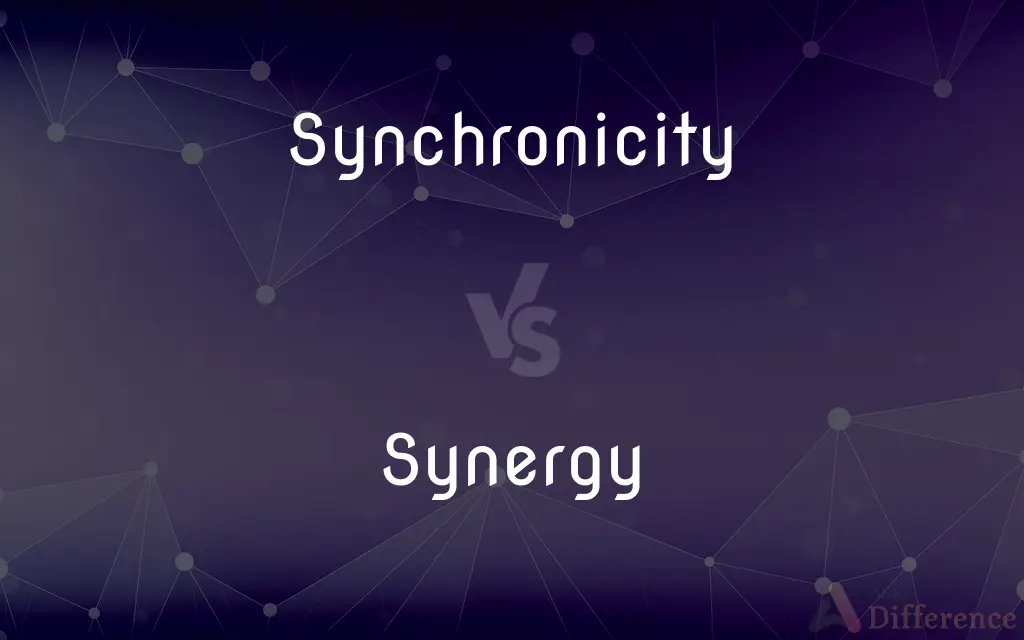Synchronicity vs. Synergy — What's the Difference?

Difference Between Synchronicity and Synergy
ADVERTISEMENT
Compare with Definitions
Synchronicity
Synchronicity (German: Synchronizität) is a concept first introduced by analytical psychologist Carl G. Jung "to describe circumstances that appear meaningfully related yet lack a causal connection." Jung held that to ascribe meaning to certain acausal coincidences can be a healthy, even necessary, function of the human mind—principally, by way of bringing important material of the unconscious mind to attention. This further developed into the view that there is a philosophical objectivity or suprasubjectivity to the meaningfulness of such coincidences, as related to the collective unconscious.During his career, Jung furnished several different definitions of the term, defining synchronicity as "a hypothetical factor equal in rank to causality as a principle of explanation", "an acausal connecting principle", "acausal parallelism", and as the "meaningful coincidence of two or more events where something other than the probability of chance is involved".
Synergy
Synergy is an interaction or cooperation giving rise to a whole that is greater than the simple sum of its parts. The term synergy comes from the Attic Greek word συνεργία synergia from synergos, συνεργός, meaning "working together".
Synchronicity
The state or fact of being synchronous or simultaneous; synchronism.
Synergy
The interaction of two or more agents or forces so that their combined effect is greater than the sum of their individual effects.
Synchronicity
Coincidence of events that appear meaningfully related but do not seem to be causally connected, taken by Jungian psychoanalytic theory to be evidence of a connection between the mind and material objects.
ADVERTISEMENT
Synergy
Cooperative interaction among groups, especially among the acquired subsidiaries or merged parts of a corporation, that creates an enhanced combined effect.
Synchronicity
(uncountable) The state of being synchronous or simultaneous.
Synergy
An instance of either such interaction.
Synchronicity
(Jungian psychology) Coincidences that seem to be meaningfully related; supposedly the result of "universal forces".
Synergy
(systems theory) A synonym of binding energy.
Synchronicity
The relation that exists when things occur at the same time;
The drug produces an increased synchrony of the brain waves
Synergy
(physiology) The cooperation of two or more nerves, muscles, organs, etc.
The digestive synergy
Synergy
(pharmacology) The combined action of two or more drugs where the effects are stronger than their mere sum.
Synergy
(figurative) Benefits resulting from combining different groups, people, objects or processes.
Synergy
Combined action
Synergy
An effect of the interaction of the actions of two agents such that the result of the combined action is greater than expected as a simple additive combination of the two agents acting separately; - also called synergism.. Opposite to antagonism.
Synergy
The working together of two things (muscles or drugs for example) to produce an effect greater than the sum of their individual effects
Share Your Discovery

Previous Comparison
Panel vs. Sheet
Next Comparison
Dip vs. Hump













































